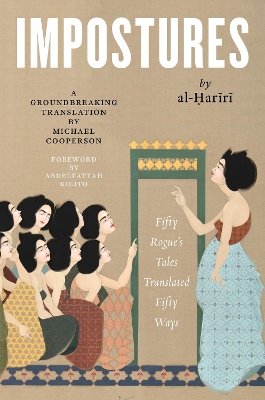Reviewed by Witty and Sarcastic Bookclub on
When I read the description of Impostures, I immediately thought of a comedic play and I think that colored my expectations a little. It was far from what I expected, and I feel very lucky to have read this enthralling book.
One of the fascinating things about this book is the number of styles translator Michael Cooperson uses: from Shakespeare to Twain, and everything in between. It was so very cool! I don’t know anything about the original text, aside from what is spoken of in the introduction, so I don’t know how closely Cooperson stuck to the original, but I could tell he put a lot of effort into keeping the spirit of it, so to speak.
It did take me a while to get through this book. It’s what I call a “smart read,” meaning it was difficult for me to focus on it during the noisy parts of my day (I have a toddler tornado). Much of what made this an intriguing read was the brilliant way language was used throughout.
Readers who like the feel of language as much as the dialogue in a story will like this book. There’s something about it that feels very special. I’m struggling to put what I mean into words, but it’s more than just a collection of stories. It’s incredibly unique and I wish I could have read this with other (smarter-than-me) people, just to have the opportunity to discuss its nuances.
This is one of those books that I’m glad I read, but will probably not read again. Some books are like that. I fully enjoyed it, and recommend it to anyone who likes to stretch their reading muscles and try something different.
Reading updates
- Started reading
- Finished reading
- 6 July, 2020: Reviewed
